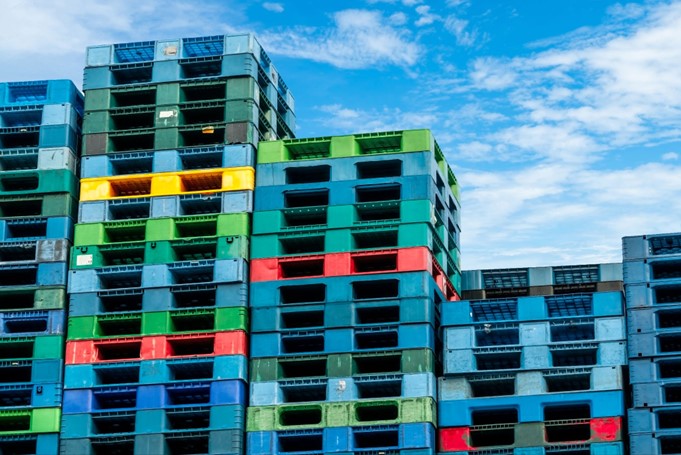Everyday packaging choices are often overlooked, but they play a much bigger role in environmental impact than most people realize. Both for larger and smaller local companies. From shipping your online orders to the way groceries are stocked, pallets are at the foundation of logistics. What if the pallet itself could make a difference? That’s exactly what sustainable pallets are designed to do—and they’re gaining serious traction with consumers who care about reducing waste and making smarter choices.
Switching to sustainable pallets isn’t just something businesses benefit from. It’s an idea that directly connects to your lifestyle, your values, and the future of the planet.
What makes a pallet sustainable
Sustainable pallets are made from materials that can either be recycled, reused, or produced with lower environmental impact. This includes recycled plastics or responsibly sourced wood. Many sustainable pallets are designed to last much longer than traditional ones, which cuts down on replacement needs and landfill waste.
This isn’t just good for the environment. It also improves logistics and helps reduce unnecessary costs along the supply chain. In fact, sustainable pallets are now being used by companies looking to offer more eco-conscious solutions that appeal to consumers like you.
The rise of recycled plastic pallets
One of the most exciting developments is the growing popularity of plastic pallets made from post-consumer recycled material. These pallets are lightweight, durable and splinter-free. They don’t absorb moisture and are resistant to bacteria, making them ideal for food and pharmaceutical applications.
But their benefits go beyond industrial use. Recycled plastic pallets can be repurposed for home storage, garden projects or even furniture. They’re an example of how smart design and sustainability can work hand in hand.
A small choice with a big environmental impact
When you hear about sustainability, you might think of reusable bags or solar panels. But changing the way we package and ship products also matters. By supporting companies that use sustainable pallets, you’re helping lower carbon emissions and reduce the demand for raw materials.
The cumulative effect of millions of improved decisions in the supply chain creates significant environmental savings. As more companies choose to go green with their logistics, your choices as a consumer also contribute to this movement.
Why reuse beats single use
The concept of reuse is central to sustainability. Instead of producing new pallets for every shipment, sustainable pallets are built to be used over and over again. Some models can last for dozens or even hundreds of trips across the globe.
This reduces the energy and resources needed for production, and it keeps materials in circulation longer. Reuse means less waste, fewer trees cut down, and lower transportation emissions because many sustainable pallets are also lighter in weight.
A better choice for food and product safety
Plastic sustainable pallets are often used in industries that require high hygiene standards. Because they are easy to clean and resistant to contaminants, they help ensure the safety of the products you consume.
This means your food, medicines and everyday products can reach you in safer, cleaner conditions, all while being transported in an environmentally responsible way.
Durability leads to less waste
Durable products reduce the need for constant replacement. Sustainable pallets are made to last, which means fewer materials end up in the trash. This makes a difference over time, especially in industries where goods are shipped constantly.
Longer product life cycles are one of the easiest ways to cut down on environmental impact. With fewer breakages and replacements, the footprint of the entire system shrinks.
Easy to recycle at the end of their life
When a sustainable pallet finally wears out, it doesn’t need to go to the landfill. Most plastic pallets can be fully recycled, which means the material can be turned into new pallets or other useful items. This supports a circular economy, where resources are reused rather than discarded.
It’s an efficient system that saves both materials and money, all while keeping the environment cleaner.
DISCLAIMER – “Views Expressed Disclaimer – The information provided in this content is intended for general informational purposes only and should not be considered financial, investment, legal, tax, or health advice, nor relied upon as a substitute for professional guidance tailored to your personal circumstances. The opinions expressed are solely those of the author and do not necessarily represent the views of any other individual, organization, agency, employer, or company, including NEO CYMED PUBLISHING LIMITED (operating under the name Cyprus-Mail).






Click here to change your cookie preferences